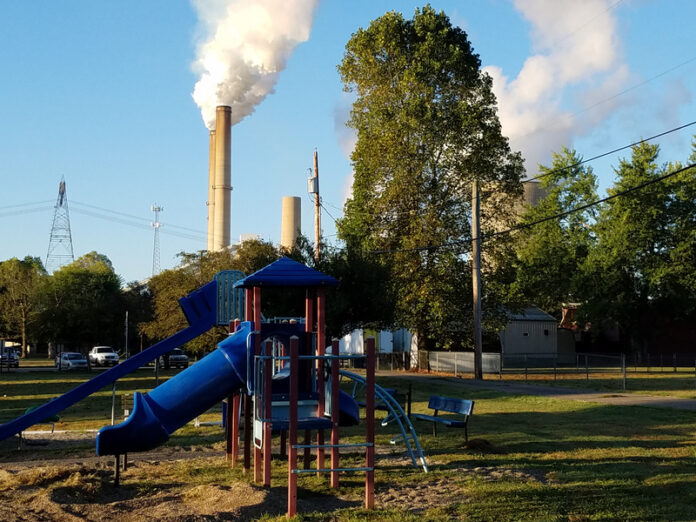Far too often, big polluters feed us the lie that we have to choose between clean air or a healthy economy. Last week, the Biden-Harris administration made a big move that shows Americans do not have to choose. The Environmental Protection Agency’s (EPA) released updated protective air quality standards that will save both lives and money.
Simply put, if you work outdoors, have a child with asthma, or an elderly family member with a cardiopulmonary disease, this new standard will make it easier to breathe.
The new National Ambient Air Quality Standards for fine particulate matter, or soot, are a big deal. Soot is one of the most dangerous and prevalent air pollutants. It enters the deepest parts of our lungs and bloodstream where it causes asthma, heart attacks, and premature death.
Moms Clean Air Force, a self-described “Mompartisan” group founded to protect children from air pollution and climate impacts, notes that “air pollution can lead to premature births, lower birth weight, and neurocognitive impacts as particulate matter can reach the developing fetal brain.”
Soot is created by coal plants, diesel vehicles, and factories. And this new rule is expected to clean up the air for the 91 million people who live in counties that experience unhealthy spikes in daily soot pollution.
The most impacted communities? You guessed it: communities of color and low-income communities.
It is the same old awful yet unsurprising story: redlining, racist zoning practices, and other factors have put Black and low-income neighborhoods near or downwind from the sources of air pollution. Fenceline communities near ports, highways, and power plants are disproportionately exposed to higher-than-average levels. Addressing soot pollution in our air has a unique urgency for these communities that bear the hardest brunt.
The new EPA standard will directly save an estimated 4,500 lives per year. It will prevent 5,700 new cases of asthma each year. As for the economic benefits, it will result in 290,000 fewer lost workdays per year and bring as much as $46 billion in net health benefits in 2032, when the standards are in full effect.
Reducing air pollution and protecting the air we breathe are moral obligations not just to our children but to future generations. EPA Administrator Michael Regan recognized as much when he told reporters the new standard would “shape the world our children will inherit tomorrow.”
Given the undeniable health and economic benefits of stronger soot standard, and the moral imperative of protecting our kids’ health and futures, you would expect passing the new standard to have been a slam dunk. But the updating of the soot standard faced fierce opposition. We must recognize that opposition for what it was: outrageously immoral.
Big polluters and their allies fought tooth and nail against the improved soot standard. They relied on the same misinformation they have used for years, which has never once come true. They made up fake obstacles to complying with improved standards. For example, they tried to use wildfire smoke as a reason why certain jurisdictions would not be able to comply with the new standards. But the EPA has clearly stated that soot from wildfires can be discounted from regulatory decisions.
The fossil fuel industry and other polluters grasped at every straw they could. But we know that protecting clean air leads to stronger economies, better health outcomes, and is simply the right thing to do. More than 600,000 people submitted public comments to the EPA last year in support of stronger standards. The Biden-Harris administration deserves credit for heeding the call.
The opposition from big polluters is a reminder that there will always be those who try to stop us when we reach for a better future. That even goes for something as basic as cleaner air and the longer life expectancies, economic opportunity, and healthier bodies that come with it.
It is also a reminder of our moral obligation to keep fighting to make sure the benefits of the new EPA standard reach the communities that need them most.
Ben Jealous is executive director of the Sierra Clubږ



